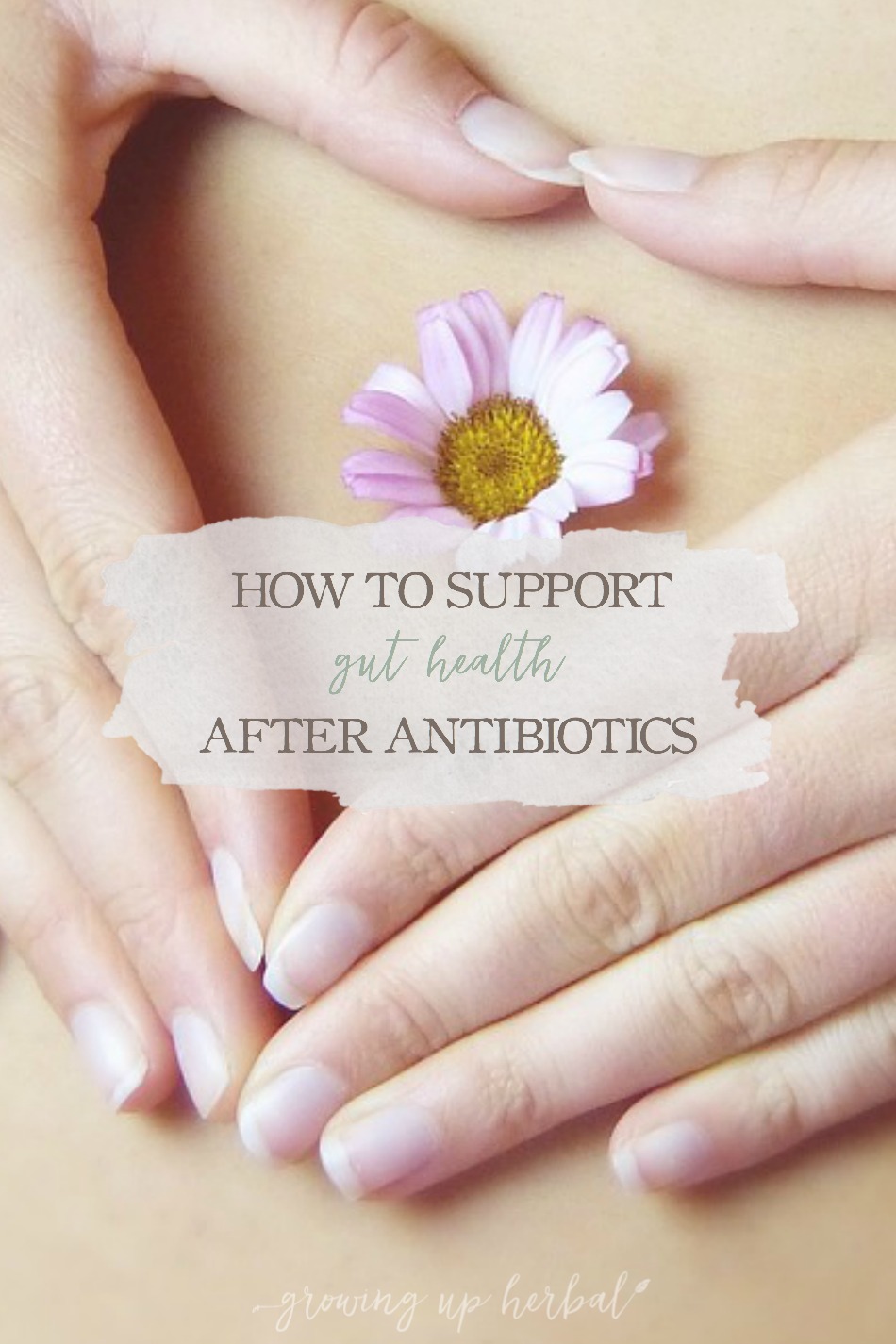
A few years ago my husband was faced with a life-threatening case of pancreatitis. Despite my best efforts of using herbs to support his body, he ended up with an emergency weeklong stay in intensive care. Seeing how we eat very healthy and use herbs and other natural products to support our health, the situation caught us completely by surprise!
As he lay in the hospital bed, fighting for his life, we made the decision to go ahead with the intravenous (IV) antibiotic treatment. While antibiotics are often overused, there are times when they are absolutely necessary as they were in this case.
In this article, I’d like to look at some situations when antibiotics are necessary. I’ll also share how they affect gut health and the best way to support gut health after a round (or two) of antibiotics.
When Are Antibiotics Necessary?
The word antibiotic literally means “against life.” Antibiotics are known to kill microbes in the gut, not discriminating between harmful and helpful bacteria (Ballantyne, 2016).
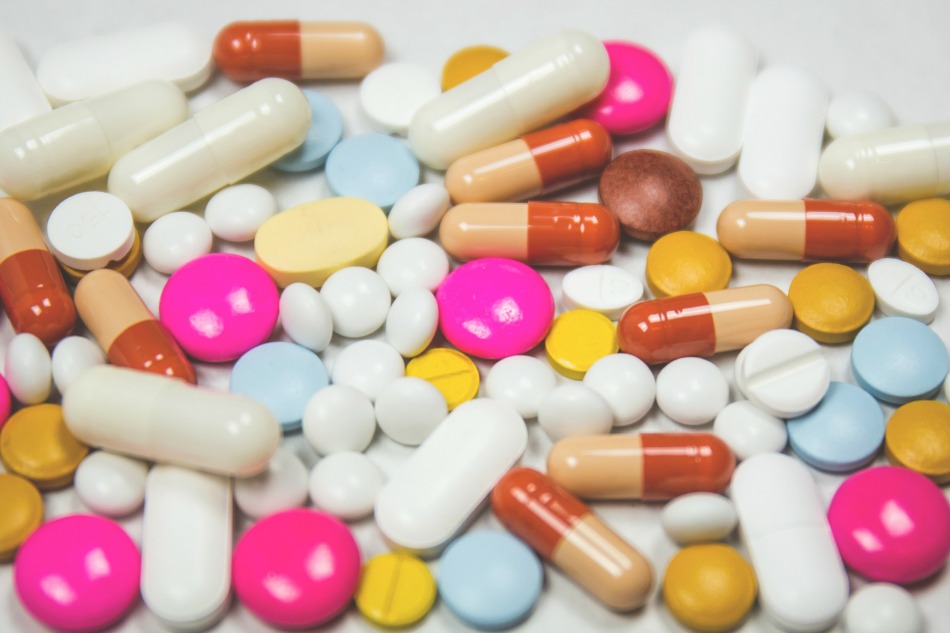
Prescription antibiotics should be considered when there is a serious bacterial infection like Lyme’s disease or small intestinal bacterial overgrowth (SIBO). Natural products with antibacterial properties, such as oregano and cinnamon essential oils and fresh garlic among many other herbs and essential oils, are usually a good first line of defense for less serious bacterial infections. This, of course, will depend on the issue at hand. It’s always a good idea to consult a qualified natural health care practitioner for advice if you’re unsure.
It’s also important to understand that antibiotics can only address bacterial infections, not viral infections. Influenza, the common cold, and even certain cases of strep throat are caused by viruses (Ballantyne, 2016; Cleveland Clinic, 2016). Even though antibiotics are commonly prescribed for these issues, they won’t help and can actually harm the body further. Because antibiotics destroy all bacteria (including beneficial bacteria), they can cause gastrointestinal side effects like diarrhea and contribute to antibiotic resistance as well (Ballantyne, 2016).
How Antibiotics Affect Gut Health
Before deciding how to best support the body after taking antibiotics, it helps to know how antibiotics affect the gut.
While antibiotics kill both the pathogenic and beneficial bacterial strains in the gut, they also affect the natural balance of yeast (Myers, 2017). Candida albicans is native to our bodies, but when beneficial bacteria isn’t prolific enough to keep it in balanced proportions, it can lead to an overgrowth, and eventually, other serious health issues (Myers, 2015).
Antibiotics can also lead to other infections in the urinary and digestive tracts, one of which is Clostridium difficile (C. difficile), a potentially life-threatening issue that causes major gastrointestinal distress (Mayo Clinic, 2016). C. difficile ranges from diarrhea to severe colon inflammation. It can also contribute to dehydration and secondary infections as well. While C. difficile mostly affects the elderly, it’s becoming increasingly common in young, healthy individuals — even those who’ve never taken antibiotics. Recently, C. difficile has increased at an alarming rate and is becoming more resistant to conventional treatments (Mayo Clinic, 2016).

Antibiotic use may lead to side effects such as diarrhea, nausea, headaches, and hypersensitivity (McFarland, 2006; Ballantyne, 2016). They also put a strain on the liver and damage the gut lining (Myers, 2017). In fact, just one course of antibiotics is thought to permanently alter gut flora (Blaser, 2011)!
“When foreign substances make it into your bloodstream, your immune system flags them as invaders and begins to attack. Over time, this causes your immune system, liver, and lymphatic system to become overwhelmed and overworked. When the immune system can no longer keep up with this demand, your immune response goes haywire, and you can develop autoimmune disease” (Myers, 2017).
I’m not saying any of this to make you feel bad if you or your little one truly needs antibiotics. It happens to the best of us! It helps, though, to understand the potential effects they can have on the body so you can make an informed decision on when to choose antibiotics and how to support the body in recovery afterward.
How Natural Antibacterial Products Affect Gut Health
Herbs and essential oils that have been shown to have antibacterial properties rarely affect the gut in the same way isolated, synthetic drugs do. That’s not to say the gut doesn’t need some support after using these types of products, but the impact is less severe.
In a 2016 study in pigs, oregano essential oil was shown to support gut health by protecting against inflammation and damage that leads to leaky gut. Not only that, but it improved gut physiology and intestinal barrier as well (Zou, Xiang, Wang, Peng & Wei, 2016).
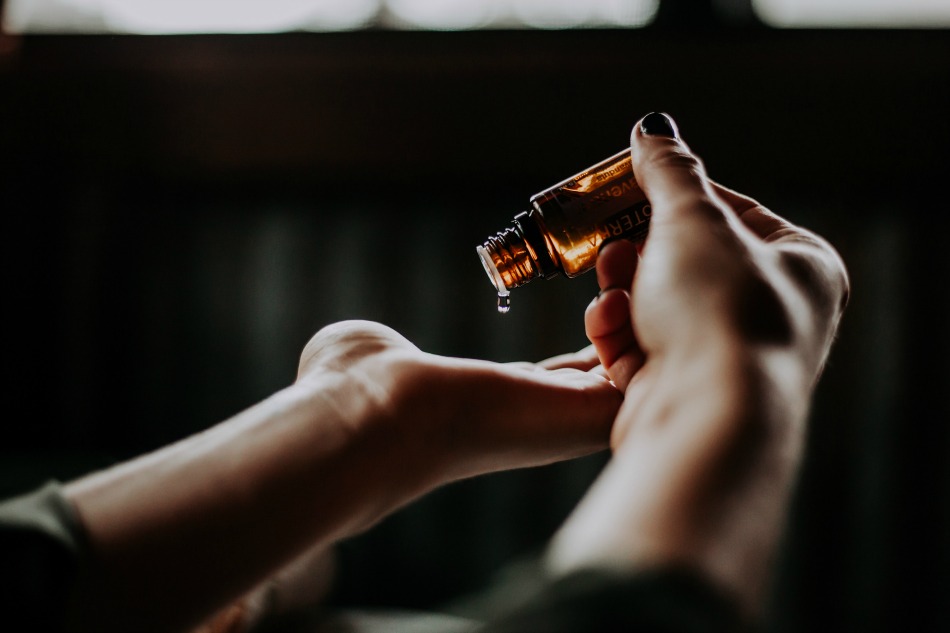
Another study on pathogens found in both human and pig intestinal tracts showed that different essential oils or their compounds inhibited E. coli and other harmful bacteria. Healthy strains of Lactobacilli and Bifidobacteria were largely unaffected, showing the essential oils and oil compounds had a targeted effect on harmful bacteria (Si et al., 2006)
A 2012 study on garlic powder’s effect on common gut microbes found that healthy bacterial strains of Lactobacillus showed some resistance to garlic (Filocamo, Nueno-Palop, Bisignano, Mandalari, & Narbad, 2012). However, a 2013 study showed that Bifidobacteria probiotic strains were affected by the garlic. Researchers concluded that supplementing with bifidobacterial strains while taking garlic wouldn’t be very effective at support gut health (Booyens & Thantsha, 2013).
A 2018 animal study found that the volatile oils from red peppers had the same antibacterial effects that the conventional antibiotic did when added to the pigs feed. However, high doses of the red pepper oil reduced the occurrence of diarrhea, which can be a side effect of prescription antibiotics (Cairo et al., 2018)
Natural Antibacterial Products to Avoid
Grapefruit seed extract (GSE) is commonly touted as an all natural antibacterial product. However, GSE is a highly refined synthetic chemical that, once processed, doesn’t retain any compounds found in grapefruit. It also has the potential to be an endocrine disruptor and is often high in contaminants that have been linked with immune system toxicity and cancer (Greenwood, 2010).
Colloidal silver is another natural antibacterial product that may not be the best option. Multiple animal studies have shown that, while colloidal silver has antibacterial properties, it can disrupt gut flora and damage gut cells (Wells, 2018). The effectiveness of the product can vary greatly, since quality control varies, and some studies have shown the tested brands of colloidal silver to have no effect on microbes. Since there are so many other options that we already know to be safe and effective, it’s not an item that I choose to use to support gut health.
Complementary Treatment
When my husband finished his ten-day course of IV antibiotics for acute pancreatitis, the hospital released him, and we were told to come back if he developed any sign of infection such as nausea, swelling and tenderness around the abdomen, a higher-than-normal pulse, or a fever. The odd thing was that he was released while he had a fever. However, under the guidance of our naturopath, a few weeks of internal antibacterial essential oils was implemented to assist the body in ridding itself of any remaining infection.
While natural methods alone were not enough to rid my husband of pancreatitis, sometimes it doesn’t have to be an either-or scenario. Conventional medicine, when necessary, can complement natural products to support gut health.
How To Support Gut Health While Taking Antibiotics
If you do find yourself needing antibiotics for whatever reason, there is no need to wait until after you’ve taken a round of antibiotics to begin efforts to support gut health. Taking protective measures while using antibiotics can help mitigate the negative effects of antibiotics on the gut.
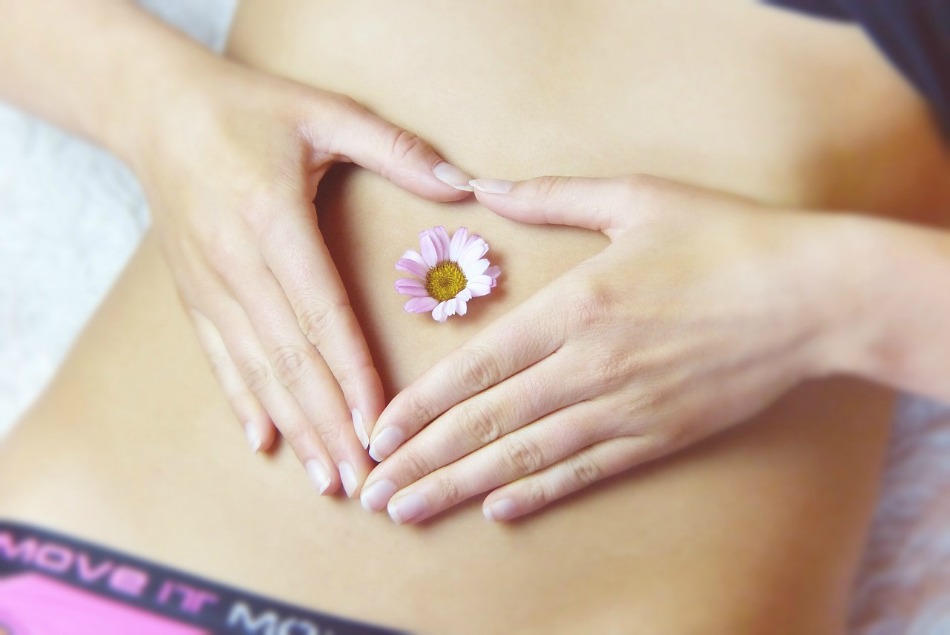
Incorporate Probiotic Supplements
Using probiotics supplements alongside antibiotics may help to prevent serious issues like Candida overgrowth and C. difficile from occurring. The Mayo Clinic recommends using probiotics (Mayo Clinic, 2016) to help support gut health and potentially prevent future cases of C. difficile. The yeast Saccharomyces boulardii has also been shown to prevent antibiotic-induced diarrhea (Szajewska & Mrukowicz, 2005).
It’s usually recommended to take probiotics about 2 hours before taking antibiotics since the antibiotics will render the probiotics less effective. A supplement that has a wide variety of probiotic strains and a high count is the recommended option. Doctor Tom O’Bryan recommends increasing gut diversity for optimal health through the use of probiotic-rich fermented foods and probiotic supplements with an array of strains (Schepker, 2016).
Lactobacillus and Bifidobacterium strains are the most commonly studied and used strains to support gut health, but diversity is really the key here (Kresser, 2014). Using probiotics to counter the negative effects of antibiotics has been so effective that many medical professionals are now prescribing probiotic supplements alongside antibiotics.
Probiotics alone won’t be enough to undo the damage caused by antibiotics, but when combined with a healthy diet, they go a long way to support gut health. Experienced healthcare practitioners generally recommend 10-40 billion CFU’s daily during and after antibiotic exposure (Ballantyne, 2016).
Foods to Eat During and After Antibiotic Use
Probiotic-Rich Foods
Fermented and cultured foods such as kimchi, sauerkraut, kombucha, kefir, unsweetened yogurt, and lacto-fermented vegetables are naturally rich in probiotics. These foods should be eaten during and after antibiotic use as they can help restore microbial counts in the gut. Keep in mind that not all probiotic-rich foods are a good idea. Store-bought kombucha and flavored yogurt can be high in natural or added sugars, so read labels and opt for low-sugar ferments and cultured products.

Prebiotics and Vegetables
A healthy diet of fresh vegetables, grass-fed animals products, and nutritive herbal teas like nettle (Urtica dioica) can support the body during and after antibiotic use. Soluble fiber contains prebiotics that help feed good gut bacteria (Bartlett, 2014) and are found in root vegetables, leafy greens, onions, chicory root, plantains, garlic, and dandelion greens. Insoluble fiber (found in whole grains, corn, beans, cabbage, and fruit and vegetable peels) can be too irritating to the gut lining since this type of fiber is rougher on digestion and should be avoided when recovering from antibiotic use (Coffman, n.d.; Bartlett, 2014).
Immune Loving Antioxidants
Antioxidant-rich foods, like berries, also help to support the immune system after antibiotic use (Bartlett, 2014) by stopping the chain reaction of free radical formation and boosting our immune system in the body (Barazesh, 2008).
Bone Broth
Mineral-rich bone broth from grass-fed animals naturally contains collagen that can encourage gut damage repair. Homemade broth is the best option and is easy to make (Myers, 2017). I make mine with scraps in an Instant Pot to save both time and money. I also don’t have a lot of freezer space, so I make these concentrated broth cubes for a fast and easy way to incorporate nutrient-dense broth into our diet.
If homemade broth isn’t doable for you, certain brands like Kettle and Fire offer a nutritious alternative. Regular store-bought broth is watered down and can even contain added flavors, mystery “spices,” and neurotoxic MSG.
Foods to Avoid During and After Antibiotics
Eating for Heat
Emily Bartlett, an acupuncturist that uses Traditional Chinese Medicine (TCM) to help her clients, recommends avoiding cold foods like smoothies and salads when recovering from antibiotics. These foods are harder to digest and don’t support the gut in the healing process. Instead, hearty soups made with bone broth and cooked vegetables are recommended. She also uses fresh ginger tea, a warming herb that helps to counteract the “cold” effects of the antibiotics (Bartlett, 2014).
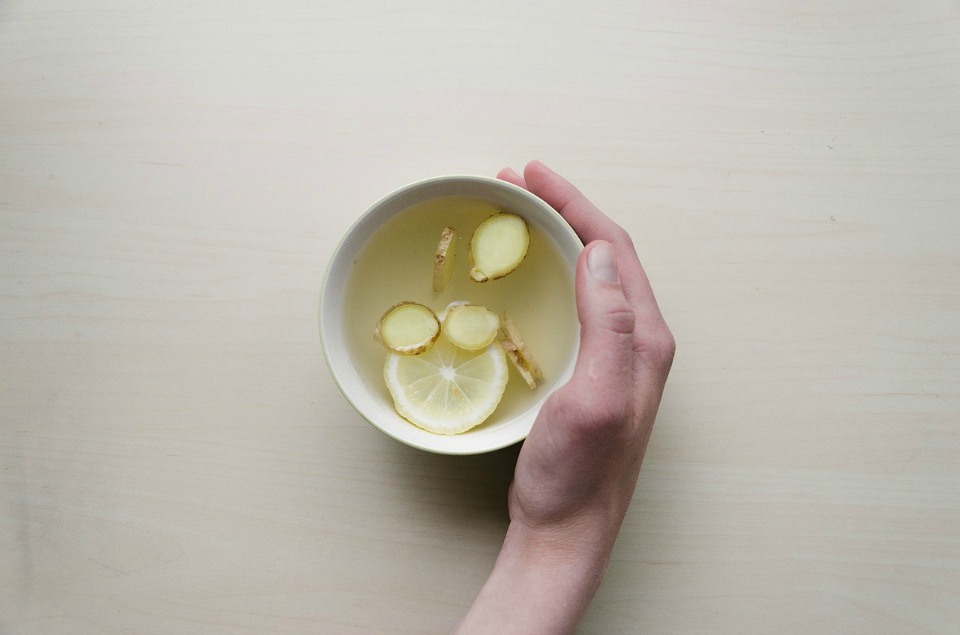
Sugar
Sugar depresses the immune system (Sisson, 2010), which is the exact opposite of what we want when fighting an infection. Processed sugar, natural sugars like maple syrup, and fruits that have a high sugar content such as bananas and watermelon are best avoided during and after antibiotic use. Sugar feeds Candida yeast, which will prevent the gut from achieving the healthy balance it needs (Myers, 2015). Raw honey or manuka honey, in moderation, is the exception here since these types of honey contain natural antibacterial properties (Sisson, 2010).
How To Support Gut Health After Taking Antibiotics
Incorporate Gut-Supportive Supplements
Whole foods are the backbone of healthy cell function, but sometimes our bodies need a little extra help. Our soil has become nutritionally depleted over the years, and unfortunately, we’re exposed to more and more pesticides and pollutants, even when all possible precautions are taken. This makes it hard to recover properly with food alone. The following supplements can help give the body the boost it needs to recover from antibiotics and restore gut health.
Collagen or Gelatin Powder
The amino acid glutamine helps restore the epithelial lining of the gut, which can become damaged when taking antibiotics. It also triggers the body to create glutathione, a potent detox agent. Glutamine is essential in the body; however, it can cause problems when taken as an isolated supplement. Collagen and gelatin powder naturally contain glutamine, along with many other co-factor amino acids (Hering & Schulzke, 2009). Since antibiotics can damage the gut lining, collagen and gelatin powder are a good way to encourage reconditioning and support gut health (Myers, 2017). These substances are naturally found in homemade bone broth, but supplementing with collagen and gelatin powders is an easy way to get even more of it into the diet. I’ve used both Great Lakes, Vital Proteins, and Perfect Supplements brands, which offer high quality, grass-fed collagen and gelatin powders.
L-Glutamine
L-glutamine is the same essential amino acid that’s found naturally in bone broth, collagen, and gelatin. L-glutamine and collagen supplements, when taken together, can help restore and discourage further damage to the gut lining. It can also increase cell turnover while on antibiotics (Myers, 2017).

Vitamin D
Vitamin D is essential for so many processes in the body, and the best way to get it is good old-fashioned sunshine. It helps the immune system to function properly and improves mood (Cannell, 2018; Harvard, n.d.). A 2012 study also found that vitamin D metabolites play a major role in the functioning of the innate immune response (Vazirnia & Liu, 2012). Getting enough vitamin D on a daily basis can help us bounce back better after antibiotic exposure and prevent further infections.
Even though sunshine is the best option, sometimes that’s not possible, depending on your location or the season. In this case, a vitamin D3 supplement or cod liver oil can be a good substitute.
Aloe Vera for Gut Repair
Aloe vera is widely used on burns and skin issues, but it also has soothing internal benefits. The gel of the aloe plant has been used for digestive issues such as irritable bowel syndrome (Khedmat, Karbasi, Amini, Aghaei, & Taheri, 2013).
In a 2018 study, polysaccharides from aloe vera were found to lessen inflammatory cytokines and protect the gut from allergic reactive symptoms (Lee et al., 2018). It was also found to reduce oxidative damage, decrease inflammation, and improve gut damage in an animal study (Werawatganon et al., 2014).
Birds supplemented with aloe vera in their water had a higher number of antibodies against the disease they were vaccinated for than the group supplemented with antibiotics. The aloe also reduced the number of pathogenic coliform bacteria as well as the antibiotic, and healthy levels of Lactobacillus bacteria were much higher than in the antibiotic group (Shokraneh, Ghalamkari, Toghyani, & Landy, 2016).
Taking aloe vera along with probiotics during and after a round of antibiotics helps to further protect the gut lining for more efficient healing. When paired with a probiotic supplement, aloe was shown to have an immunoprotective effect and increased antibodies (Hussain et al., 2017).
Managing Antibiotic-Induced Candida Infections
Because antibiotics attack beneficial bacteria that control the population of pathogenic bacteria and yeast in the gut, this can cause issues like urinary tract infections, bacterial vaginosis, and an overgrowth of candida yeast. Candida infections can be diagnosed with a simple blood test, however, the signs are usually too noticeable to miss. Chronic fatigue, digestive issues, brain fog, mood issues, sugar and carb cravings, and itchiness in the nether regions are common symptoms of Candida overgrowth (Meyers, 2015).
The herb pau d’arco is a safe option for managing candida. Naturopathic doctor Eric Bakker recommends decocting 3 tablespoons of pau d’arco in a quart of water for 20 minutes. He then has his patients drink 1 cup twice a day in between meals until the fungal infection is gone (Bakker, 2015). As always, it’s best to consult with your natural health care practitioner before approaching an infection on your own.
It’s also vital to avoid all processed and natural sugars, fermented foods, and severely limit carb intake for a season. Meagan has a great post on overcoming Candida naturally here.
Helping Children Recover From Antibiotics
Babies & Antibiotics
On average 31% of births in the United States are by cesarean section, where babies are automatically given a large dose of antibiotics via their mother (Center for Disease Control, 2017). If mama tests positive for group B strep, antibiotics are also usually given (Center for Disease Control, 2017).

For breastfed babies, mama can take a probiotic and eat nourishing foods for baby’s digestion. Infant probiotics are also a good option for babies that need some more gut care. If you’re unable to breastfeed, infant probiotics in some homemade formula may be the next best option. The Weston A. Price foundation has recipes for safe and healthy homemade formula here.
Children & Antibiotics
Antibiotics are often given to children for ear infections, the common cold, and other childhood illnesses that are usually viral in nature. My 6-year-old son has been sick less than a handful of times in his life. Each time we’ve been able to tend to it successfully at home. If we had needed to enlist the help of a doctor, though, I would have had them test to see if the infection was viral or bacterial before giving him antibiotics. This is an easy way to know if antibiotics are really necessary.
Recovering from antibiotics is much the same in children as it is in adults. Avoiding sugar, eating healthy foods, consuming fermented foods, and adding appropriate supplements can all help support gut health.
One expert recommends a probiotic supplement with at least 5 billion CFU’s for children both during and after antibiotics. Current research also points to the strains Lactobacilli, Bifidobacteria, and Saccharomyces boulardii as being the most effective for antibiotic recovery (Ballantyne, 2016).
Homemade gummy snacks are a fun and yummy way to give your child gut-healthy collagen. Adding milk kefir or unsweetened yogurt to a berry smoothie sweetened with a little stevia is another way to add more probiotics to their diet.
To Recap
If you’ve found yourself needing to take antibiotics for whatever reason, you can help support gut health by incorporating the following:
- Eat low-sugar fermented foods
- Eat lots of soluble fiber and “warming” foods
- Avoid insoluble fiber and “cold” foods
- Avoid processed and natural sugars
- Add in supplements like collagen, probiotics, and aloe vera as needed
- Address Candida, if necessary
So what about you? Have you had any success in using natural methods to support gut health after antibiotic use? Feel free to share your story and findings in the comment section below!
REFERENCES:
- Bakker, E. (2015). Pau D’Arco for Candida. [Online Article]. Retrieved from http://ericbakker.com/pau-darco-for-candida/
- Barazesh, S. (2008). Probing question: How do antioxidants work? [Online Article]. Retrieved from https://news.psu.edu/story/141171/2008/08/18/research/probing-question-how-do-antioxidants-work
- Bartlett, E. (2014). How to recover from antibiotics. [Online Article]. Retrieved from http://holisticsquid.com/how-to-recover-from-antibiotics/
- Blaser, M. (2011). Antibiotic overuse: Stop the killing of beneficial bacteria. Nature, 476, 393–394. doi:10.1038/476393a
- Booyens, J. & Thantsha, M. (2013). Antibacterial effect of hydrosoluble extracts of garlic (Allium sativum) against Bifidobacterium spp. and Lactobacillus acidophilus. African Journal of Microbiology Research, 7(8), 669-677. Retrieved from http://www.academicjournals.org/journal/AJMR/article-abstract/0D46DD320292
- Cairo, P.L.G., Gois, F.D., Sbardella, M., Silveira, H., de Oliveira, R.M., Allaman, I.B.,…& Costa, L.B. (2018). Effects of dietary supplementation of red pepper (Schinus terebinthifolius Raddi) essential oil on performance, small intestinal morphology and microbial counts of weanling pigs. Journal of the Science of Food and Agriculture. 98(2), 541-548. doi: 10.1002/jsfa.8494.
- Cannell, J. (2018). Vitamin D and depression. [Online Article]. Retrieved from https://www.vitamindcouncil.org/health-conditions/depression/
- Center for Disease Control. (2017). Births – method of delivery. [Online Article]. Retrieved from https://www.cdc.gov/nchs/fastats/delivery.htm
- Cleveland Clinic. (2016). Strep throat or sore throat? Best ways you can tell. [Online Article]. Retrieved from https://health.clevelandclinic.org/strep-throat-sore-throat-best-ways-can-tell/
- Coffman, M.A. (n.d.). Sources of insoluble fiber. [Online Article]. Retrieved from http://healthyeating.sfgate.com/sources-insoluble-fiber-1413.html
- Filocamo, A., Nueno-Palop, C., Bisignano, C., Mandalari, G., & Narbad, A. (2012). Effect of garlic powder on the growth of commensal bacteria from the gastrointestinal tract. Phytomedicine, 19(8-9), 707-11. doi: 10.1016/j.phymed.2012.02.018.
- Greenwood, S. (2010). The truth about grapefruit seed extract. [Online Article]. Retrieved from http://chemicaloftheday.squarespace.com/most-controversial/2010/1/27/the-truth-about-grapefruit-seed-extract.html
- Harvard T.H. Chan. (n.d.) Vitamin D and health. [Online Article]. Retrieved from https://www.hsph.harvard.edu/nutritionsource/what-should-you-eat/vitamins/vitamin-d/#vitamin-d-references
- Hering, N.A. & Schulzke, J.D. (2009). Therapeutic options to modulate barrier defects in inflammatory bowel disease. Digestive Diseases. 27(4), 450-454. doi: 10.1159/000233283.
- Hussain, S.A., Patil, G.R., Reddi, S., Yadav, V., Pothuraju, R., Singh, R.R.B., & Kapila, S. (2017). Aloe vera (Aloe barbadensis Miller) supplemented probiotic lassi prevents Shigella infiltration from epithelial barrier into systemic blood flow in mice model. Microbrial Pathogenesis, 102, 143-147. DOI:10.1016/j.micpath.2016.11.023
- Khedmat, H., Karbasi, A., Amini, M., Aghaei, A., & Taheri, S. (2013). Aloe vera in treatment of refractory irritable bowel syndrome: Trial on Iranian patients. Journal of Research in Medical Sciences, 18(8), 732. Retrieved from https://www.ncbi.nlm.nih.gov/pmc/articles/PMC3872617/
- Kresser, C. (2014). What to do if you need to take antibiotics. [Online Article]. Retrieved from https://chriskresser.com/what-to-do-if-you-need-to-take-antibiotics/
- Lee, D., Kim, H.S., Shin, E., Do, S.G., Lee, C.K., Kim, Y.M,…Choi, W.S. (2018). Polysaccharide isolated from Aloe vera gel suppresses ovalbumin-induced food allergy through inhibition of Th2 immunity in mice. Biomedicine and Pharmacotherapy, 101, 201-210. doi: 10.1016/j.biopha.2018.02.061.
- Mayo Clinic. (2016). C. Difficile infection. [Online Article]. Retrieved from https://www.mayoclinic.org/diseases-conditions/c-difficile/symptoms-causes/syc-20351691
- McFarland, L.V. (2006). Meta-analysis of probiotics for the prevention of antibiotic associated diarrhea and the treatment of Clostridium difficile disease. American Journal of Gastroenterology, 101(4), 812-22. DOI: 10.1111/j.1572-0241.2006.00465.x
- Myers, A. (2015). 10 signs you have Candida overgrowth and how to overcome it. [Online Article]. Retrieved from https://www.amymyersmd.com/2015/11/10-signs-you-have-candida-overgrowth-and-what-to-do-about-it/
- Myers, A. (2017). How antibiotics wreak havoc on your gut. [Online Article]. Retrieved from https://www.amymyersmd.com/2017/11/antibiotics-wreak-havoc-gut/
- Schepker, K. (2017). How to restore gut flora after antibiotics. [Online Article]. Retrieved from https://holisticprimarycare.net/topics/topics-a-g/digestive-health/1862-how-to-restore-gut-flora-after-antibiotics.html
- Shokraneh, M., Ghalamkari, G., Toghyani, M., & Landy, N. (2016). Influence of drinking water containing Aloe vera (Aloe barbadensis Miller) gel on growth performance, intestinal microflora, and humoral immune responses of broilers. Veterinary World, 11, 1197-1203. DOI: 10.14202/vetworld.2016.1197-1203
- Si, W., Gong, J., Tsao, R., Zhou, T., Yu, H., Poppe, C.,…Du, Z. (2006). Antimicrobial activity of essential oils and structurally related synthetic food additives towards selected pathogenic and beneficial gut bacteria. Journal of Applied Microbiology, 100(2), 296-305. DOI: 10.1111/j.1365-2672.2005.02789.x
- Sisson, M. (2010). Dear Mark: Sugar as an immune suppressant. [Online Article]. Retrieved from https://www.marksdailyapple.com/sugar-suppresses-immune-system/
- Szajewska, H. & Mrukowicz, J. (2005). Meta-analysis: non-pathogenic yeast Saccharomyces boulardii in the prevention of antibiotic-associated diarrhoea. [Abstract]. Alimentary Pharmacology and Therapeutics, 22(5), 365-72. DOI: 10.1111/j.1365-2036.2005.02624.x
- Wells, K. (2018). Colloidal silver: Safe and effective? When not to use. [Online Article]. Retrieved from https://wellnessmama.com/130001/colloidal-silver/
- Vazirnia, A., & Liu, P.T. (2012). Vitamin D and the innate immune response. [Abstract]. Retrieved from https://www.researchgate.net/publication/286141238_Vitamin_D_and_the_Innate_Immune_Response
- Werawatganon, D., Rakananurak, N., Sallapant, S., Prueksapanich, P., Somanawat, K., Klaikeaw, N., & Rerknimitr, R. (2014). Aloe vera attenuated gastric injury on indomethacin-induced gastropathy in rats. World Journal of Gastroenterology, 20(48),18330-7. doi: 10.3748/wjg.v20.i48.18330
- Zou, Y., Xiang, Q., Wang, J., Peng, J. & Wei, H. (2016). Oregano essential oil improves intestinal morphology and expression of tight junction proteins associated with modulation of selected intestinal bacteria and immune status in a pig model. Biomed Research International. doi: 10.1155/2016/5436738.
4.5
Thanks for sharing, Jamie! This article covers all key points essential for a successful gut recovery.
I’d like to add that people should use this approach (with minor modifications) regardless of the cause of their digestive issues. This is, more or less, the basis of maintaining great gut health. When it comes to probiotic-rich foods, sauerkraut is my all-time favorite!
Luckily, I can’t recall the last time I used antibiotics. Herbs like sage, garlic, cinnamon, oregano, etc. have never failed me. I am a pharmacist and it makes me sad to see many of my colleagues over-prescribing antibiotics.
Even in the case of bacterial infection, antibiotics are prescribed if the symptoms persist for more than 5-7 days.
Sorry for the long comment and keep up the great work!